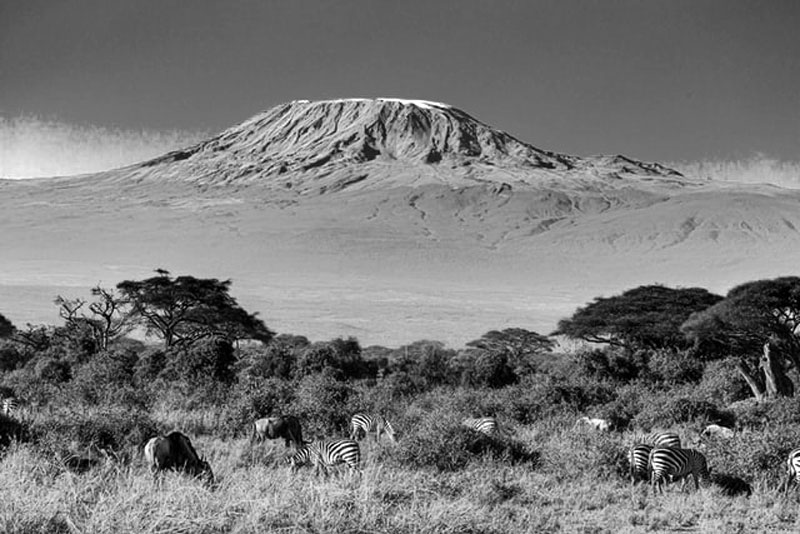Navigating Visa Requirements for Your Dream Safari: Kenya and Tanzania Travel
Embarking on a dream safari in Kenya and Tanzania is an adventure that promises breathtaking landscapes, mesmerizing wildlife encounters, and unforgettable cultural experiences. However, before you can set foot on this African paradise, it is essential to navigate the intricate web of visa requirements for Kenya and Tanzania. With a myriad of rules and regulations, understanding the visa process can feel overwhelming. But fear not! In this guide, we will break down everything you need to know about obtaining a visa for your dream safari in Kenya and Tanzania. From the types of visas available to the application process and required documents, we’ve got you covered. So, let’s dive in and ensure that nothing stands between you and the safari of a lifetime. Get ready to embark on an unforgettable journey through the heart of Africa, where the vast plains, majestic wildlife, and vibrant cultures await your discovery.
Visa Requirements for Kenya
Kenya, known for its diverse landscapes and abundant wildlife, is a must-visit destination for any safari enthusiast. To enter Kenya, most travelers will require a visa. There are several types of visas available depending on the purpose and duration of your visit.
It is also worthy to note here that the visa types and the visa requirements for Kenya and Tanzania are quite similar. The most common visa for tourists is the single-entry visa, which allows you to stay in Kenya for up to 90 days. This visa can be obtained either online through the eVisa system or upon arrival at the airport. The eVisa is recommended as it allows for a smoother and faster entry process. To apply for an eVisa, you will need a valid passport, a digital passport photo, and a copy of your itinerary.
For those planning to stay in Kenya for longer than 90 days or wishing to make multiple entries, a multiple-entry visa is required. This visa allows for multiple entries within a specified period, usually six months to one year. To obtain a multiple-entry visa, you will need to provide additional documents such as a letter of invitation, proof of accommodation, and a detailed itinerary.
Another option is the transit visa, which is suitable for travelers passing through Kenya to another destination. Note that the visa requirements for Kenya and Tanzania also apply to transit visas. The transit visa allows for a stay of up to 72 hours and is available both online and upon arrival.
It is important to note that visa requirements may vary depending on your country of citizenship. It is advisable to check the official website of the Kenyan embassy or consulate in your home country for the most up-to-date information and specific requirements.
Visa Requirements for Tanzania

Tanzania, with its world-renowned Serengeti National Park and Mount Kilimanjaro, offers an incredible safari experience. There are visa requirements for Kenya and Tanzania as both locations require visas. There are also different types of visas available depending on the purpose and duration of your visit.
For tourists, the most common visa is the single-entry visa, which allows for a stay of up to 90 days. This visa can be obtained either online through the eVisa system or upon arrival at the airport. The eVisa is recommended as it saves time and ensures a smoother entry process. To apply for an eVisa, you will need a valid passport, a digital passport photo, and a copy of your itinerary.
When looking at visa requirements for Kenya and Tanzania, you should note that if you plan to stay in Tanzania for longer than 90 days or wish to make multiple entries, you will need to apply for a multiple-entry visa. This visa is valid for a specified period, usually six months to one year, and requires additional documentation such as a letter of invitation, proof of accommodation, and a detailed itinerary.
For travelers transiting through Tanzania to another destination, a transit visa is available. The transit visa allows for a stay of up to seven days and can be obtained online or upon arrival. It is essential to ensure that your transit time does not exceed the allowed duration to avoid any issues during your journey.
As visa requirements for Kenya and Tanzania can change, it is recommended to check the official website of the Kenyan or Tanzanian embassy or consulate in your home country for the most up-to-date information and specific requirements based on your citizenship.
Visa Extensions and Renewals
If you find yourself needing to extend your stay in Kenya or Tanzania beyond the allowed duration of your visa, it is possible to apply for a visa extension or renewal. However, the process and requirements may vary in each country, so it is important to familiarize yourself with the specific regulations.
Visa requirements for Kenya and Tanzania visa renewals and extensions are as follows. In Kenya, visa extensions can be obtained by visiting the immigration office in Nairobi or Mombasa. You will need to provide a completed application form, a valid passport, a copy of your current visa, and proof of sufficient funds to support your extended stay. It is advisable to apply for an extension at least one week before your visa expires to allow for processing time.
In Tanzania, visa extensions can be obtained by visiting the immigration office in Dar es Salaam or Zanzibar. You will need to provide a completed application form, a valid passport, a copy of your current visa, and proof of sufficient funds to support your extended stay. It is recommended to apply for an extension at least one week before your visa expires to avoid any complications.
Note also that when dealing with visa requirements for Kenya and Tanzania particularly where renewals and extensions are concerned, you may not be eligible for either a renewal or an extension if your visa has already expired. You may be required to leave the country and apply for a new visa from your home country or a neighboring country. Overstaying your visa can result in fines, deportation, or other legal consequences, so it is essential to comply with the visa regulations to ensure a smooth and enjoyable safari experience.
Visa on Arrival vs. Evisa
Both Kenya and Tanzania offer the option of obtaining a visa on arrival at the airport or applying for an eVisa in advance. While both methods allow for entry into the country, there are several advantages to choosing the eVisa option.
Applying for an eVisa allows you to complete the visa requirements for Kenya and Tanzania before your trip, eliminating the need to queue upon arrival and saving valuable time. It also provides peace of mind, knowing that your visa has been approved in advance and that you meet all the necessary requirements.
In contrast, obtaining a visa on arrival can sometimes be a lengthy process, especially during peak travel seasons. You may have to wait in line, fill out forms, and provide additional documents. Additionally, there is a small risk of being denied entry if you do not meet the visa requirements or if there are any issues with your documentation.
To apply for an eVisa, you will need to visit the official eVisa website of the respective country and fill out the online application form. You will be required to provide personal information, passport details, and travel details which are the visa requirements for Kenya and Tanzania. Once your application is submitted and approved, you will receive an electronic visa via email, which you can print and present upon arrival.
It is important to note that the eVisa systems of Kenya and Tanzania are separate, and you will need to apply for each visa separately if you plan to visit both countries. It is advisable to apply for the eVisa well in advance of your trip to allow for processing time and avoid any last-minute complications.
Conclusion and Final Tips for Navigating Visa Requirements for Your Dream Safari
Navigating visa requirements for Kenya and Tanzania for your dream safari may seem daunting, but with the right information and preparation, it can be a straightforward process. Remember to check the official websites of the Kenyan and Tanzanian embassies or consulates in your home country for the most up-to-date information and specific requirements based on your citizenship.
Applying for an eVisa is highly recommended as it saves time and ensures a smoother entry process. The visa requirements for Kenya and Tanzania are also easily submitted via eVisa platforms. Be sure to gather all the necessary documents, such as a valid passport, digital passport photos, and a copy of your itinerary, before applying for the visa.
Plan your stay carefully and consider the duration of your visit. If you plan to stay longer than the allowed duration, apply for a multiple-entry visa or explore the option of a visa extension or renewal.
Lastly, remember to comply with the visa regulations to avoid any complications. Overstaying your visa can result in fines, deportation, or other legal consequences. It is always better to be well-informed and prepared to make the most of your dream safari experience.
Now that you have all the information you need, it’s time to start planning your adventure. Get ready to witness the wonders of the African wilderness, from the iconic Maasai Mara to the majestic Serengeti. Immerse yourself in vibrant cultures, encounter magnificent wildlife, and create memories that will last a lifetime. Your dream safari awaits, and with the right visa in hand, nothing stands between you and the journey of a lifetime.
Safe travels, and enjoy your unforgettable safari experience in Kenya and Tanzania!
For more articles related to Tanzania Immigration, click here!

































